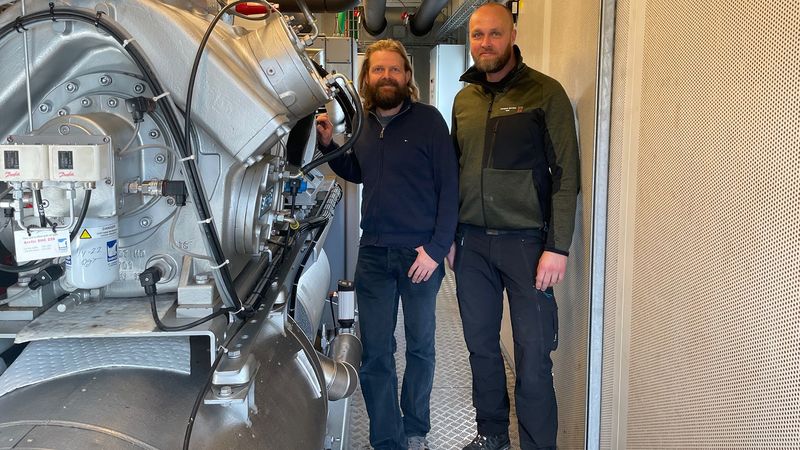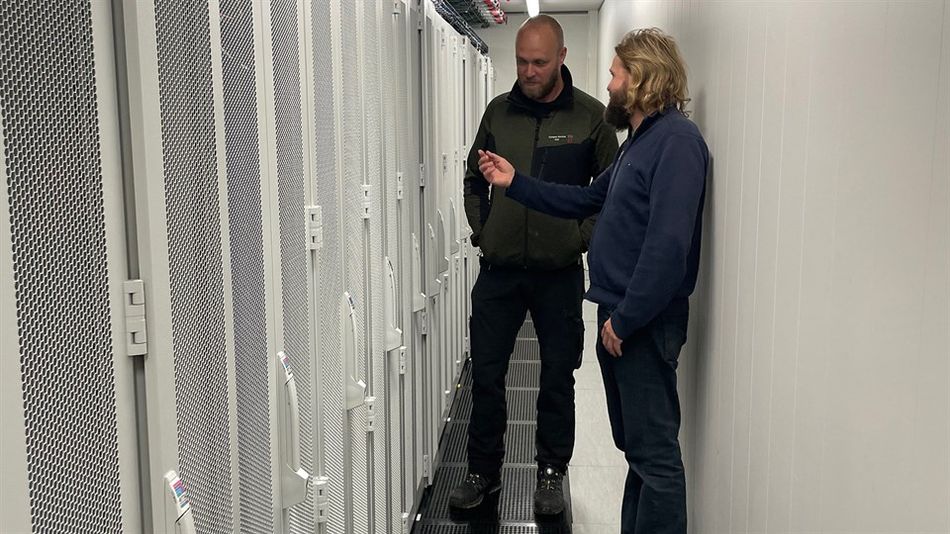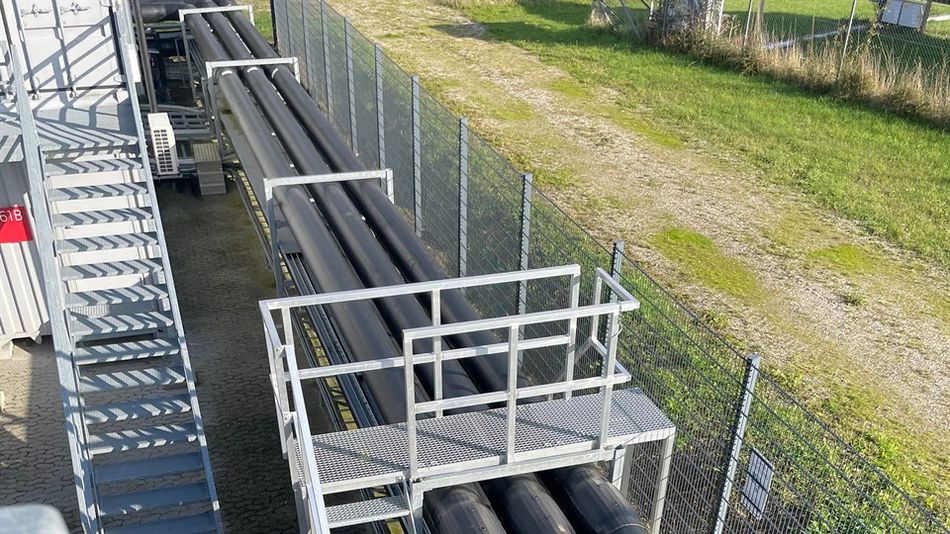Heat from supercomputers recycled at DTU
A project at DTU Risø Campus shows that heat recovery is the most sustainable and economical choice—even at a time of rising electricity prices.

With a heat pump connected to DTU's data center, engineers Esben Højrup and Bjarke Nonbøl from DTU Campus Service utilize waste heat from the cooling servers. The heat pump supplies heat to the district heating network on Risø Campus.
DTU Campus Service at Risø operates a server park with supercomputers covering 3,500 square metres. However, the energy does not simply vanish into thin air, but is converted into heat by means of a heat pump at Risø Campus.
“It’s possible to channel up to 600 kilowatts of waste heat from the IT equipment into the district heating network at Risø Campus. This means that we are self-sufficient with heating four months of the year,” says Esben Højrup, Technical Project Manager at DTU Campus Service (CAS).
For the rest of the year, the surplus energy contributes to a district heating corresponding to 19 percent of Risø campus' energy consumption in the same period.
Low carbon footprint
Despite rising electricity prices, it is still worthwhile to run the heat pump that recovers the surplus energy. This is shown by figures from DTU’s latest green accounts.
“We get close to six times as much heat into the district heating network than the electricity consumed by the heat pump. This ratio—which is called the COP value—is really impressive,” says Bjarke Nonbøl, Engineer at DTU Campus Service (CAS).
Electricity emits more CO2 than district heating—approximately 2.7 times more per megawatt hour—but as the heat pump generates about six times more heat, the heat pump is the solution with the lowest carbon emission.
"The carbon emission is only 45 per cent of what it would have been with district heating from a utility company,” says Bjarke Nonbøl.
Intelligent control
If electricity prices continue to skyrocket—or if we have periods of power shortages—it may be necessary to turn off the heat pump to save power.
“You can’t say that the price of electricity must reach as much as, for example, ten Danish kroner on average before it’s worthwhile to buy district heating from outside. The ratio between the electricity price and the district heating price determines whether it’s still worthwhile to run the heat pump,” says Bjarke Nonbøl.
Therefore, CAS Risø is working to develop a system that can monitor in real time whether operation of the heat pump is worthwhile.
“We regulate our heat production by using PLC—which is a programmable device—a small computer specially developed for automation and control of a process, also called ‘process control’. For example, opening and closing a valve, controlling temperatures, or controlling flow and pressure," says Esben Højrup and continues:
"What we still need to do is to program the fluctuating electricity prices into the PLC environment. In this way, we can completely automatically control whether the heat pump is to supply heat to the campus, or whether we are to get the heat from the district heating company.”
Critical look
CAS Risø has long been working to reduce its carbon emissions by reducing its energy consumption. At a time when power has become expensive and will remain expensive for a long time to come, however, it raises the question of whether it is a luxury to choose to use power for heating.
“We have to consider the current prices and our power consumption. Power can be used for most purposes, while heat can primarily be used for heating in buildings. Therefore, we also need to take a critical look at how we can optimize our current heat recovery model using intelligent control,” concludes Esben Højrup.

